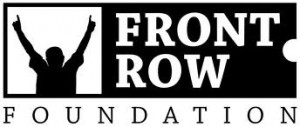Dr. Joseph Barber
We have all experienced the phenomenon of working so hard on a particular document that it becomes almost impossible to proofread it effectively. Your brain is so good at figuring out what you are trying to say, that it doesn’t bother to alert you to some minor spelling mistake – you get “spellcheck blindness”. You will spend an awfully long time looking at your resume/CV and cover letter, or at least at a large number of very similar versions of these documents, and the risk of spellcheck blindness becomes quite significant. If there is one type of document that you really want to be perfect, then it will definitely be the one you are sending to an employer where you are highlighting your “attention to detail”. So, stop by Career Services to get a fresh look at your materials, and we’ll be happy to do some proofreading for you.
You definitely want an error-free set of job application materials. However, while we are talking about spellcheck blindness, you might be interested in just how effective your brain is at processing meaning from text – even if that text is somewhat chaotic. You can find a good example of this below, where I have provided two versions of the same poem (which is actually not a bad career advice type of poem). Try getting through the first version, but you can always skip down to the bottom to see the original.
‘if’ by rrdayud kipilng
If you can keep yuor haed wehn all aobut you
Are lnsiog thiers and bianmlg it on you,
If you can turst yusrleof wehn all men dbout you,
But mkae alanowlce for tehir duontbig too;
If you can wiat and not be tierd by wntiaig,
Or bineg leid auobt, don’t dael in leis,
Or benig htead, don’t gvie way to hiatng,
And yet don’t look too good, nor tlak too wsie:
If you can darem – and not mkae dmaers yuor msater,
If you can tihnk – and not mkae ttghhous yuor aim;
If you can meet wtih Tpumirh and Dtseasir
And traet thsoe two iortmspos jsut the smae;
If you can baer to haer the trtuh you’ve spoekn
Tesiwtd by kevnas to mkae a tarp for floos,
Or wtcah the tinhgs you gvae yuor lfie to, breokn,
And sotop and bluid ’em up wtih wron-out tolos:
If you can mkae one haep of all yuor wininngs
And rsik it all on one trun of ptich-and-tsos,
And lsoe, and sratt aiagn at yuor bniiggnens
And nveer baerth a wrod aoubt yuor lsos;
If you can froce yuor hraet and nrvee and sniew
To svree yuor trun lnog afetr tehy are gnoe,
And so hlod on wehn trehe is nhontig in you
Epxcet the Wlil whcih syas to tehm: “Hlod on!”
If you can tlak wtih crdwos and keep yuor vturie,
Or wlak wtih kngis – nor lsoe the cmmoon tcuoh,
If nheeitr feos nor liovng fdriens can hrut you,
If all men cunot wtih you, but nnoe too mcuh;
If you can flil the uigrnonvfig mnuite
Wtih stxiy snceods’ wotrh of dinstace run,
Yuros is the Etrah and envyeirthg taht’s in it,
And – whcih is mroe – you’ll be a Man, my son!
And here is the unscrambled version:
‘if’ by rudyard kipling
If you can keep your head when all about you
Are losing theirs and blaming it on you,
If you can trust yourself when all men doubt you,
But make allowance for their doubting too;
If you can wait and not be tired by waiting,
Or being lied about, don’t deal in lies,
Or being hated, don’t give way to hating,
And yet don’t look too good, nor talk too wise:
If you can dream – and not make dreams your master,
If you can think – and not make thoughts your aim;
If you can meet with Triumph and Disaster
And treat those two impostors just the same;
If you can bear to hear the truth you’ve spoken
Twisted by knaves to make a trap for fools,
Or watch the things you gave your life to, broken,
And stoop and build ’em up with worn-out tools:
If you can make one heap of all your winnings
And risk it all on one turn of pitch-and-toss,
And lose, and start again at your beginnings
And never breathe a word about your loss;
If you can force your heart and nerve and sinew
To serve your turn long after they are gone,
And so hold on when there is nothing in you
Except the Will which says to them: “Hold on!”
If you can talk with crowds and keep your virtue,
Or walk with kings – nor lose the common touch,
If neither foes nor loving friends can hurt you,
If all men count with you, but none too much;
If you can fill the unforgiving minute
With sixty seconds’ worth of distance run,
Yours is the Earth and everything that’s in it,
And – which is more – you’ll be a Man, my son!
Rudyard Kipling (1865-1936)



